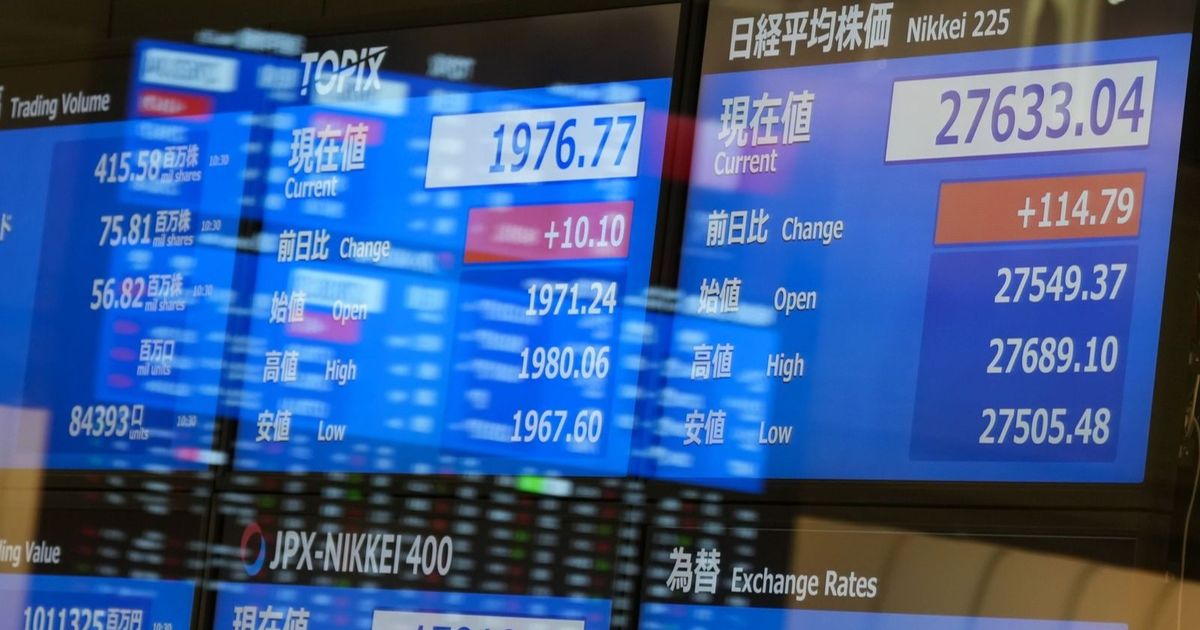Asian stocks rose on Monday, supported by signs of easing trade tensions between the United States and China, and expectations that stimulus backer Sanae Takaichi will become Japan’s next prime minister. The MSCI Asia-Pacific index rose 1.6% after two straight weekly losses, while the Nikkei 225 index headed for a new record high, with the leaders of the ruling Liberal Democratic Party and the opposition Isshin Party reaching an agreement to form a governing coalition in Japan. The yen fell against the dollar. Optimism in talks between the US and China Market sentiment improved after US President Donald Trump tried to calm trade tensions with China, after market turmoil on Friday due to concerns about credit in US banks. A new round of trade talks between the US and China will be held this week, with the participation of Finance Minister Scott Besent and Chinese Vice Premier He Lifeng, in an attempt to reduce the severity of the new escalating measures. Hong Kong shares extended gains even as China’s economic growth slowed to its weakest pace in a year, as focus shifted to an upcoming major political meeting in Beijing. Also read: China is gearing up for a crucial meeting that could boost inventory gains and strengthen the yuan. Kyle Rodda, senior market analyst at Capital.com in Melbourne, wrote: “Markets are currently praising a calming scenario, but tensions will continue until reductions in positions are explicitly announced.” Global indicators were mixed Elsewhere, the US 10-year Treasury bond yield rose about one basis point to 4.02%, while gold rose slightly and the dollar index steadied, while oil prices fell. In an interview with Fox News on Sunday, Trump said 100% tariffs on Chinese goods were “unsustainable” although they “could be implemented,” adding that the United States would be fine with China. For his part, Besant said he spoke to He Lifeng via a virtual call on Friday night, describing the discussions as “sincere and detailed” and confirming his plans for a face-to-face meeting next week. His remarks came after Trump’s optimism about the possibility of reaching a deal that would ease the crisis was evidenced by his threat to sharply increase tariffs, citing Washington’s efforts to contain fears about the outbreak of a full-scale trade war with Beijing that could seriously affect the global economy. “There is a widespread belief that news on US-China trade will remain positive,” Chris Weston, head of research at Pepperstone Group, wrote in a note to clients. A busy week for investors: From the delayed US inflation report for September, to the high-level political meeting in China, and a week full of earnings announcements for companies like Netflix and Tesla, investors are expecting an eventful week. The US consumer price index for September, which was scheduled for October 15, will be released on Friday. In China, political leaders in Beijing begin a four-day meeting known as the “Fourth General Session”, with traders awaiting any new measures to support the strongest rise in Chinese shares in eight years, and to strengthen the yuan. Although the detailed plan will not be announced until March next year, investors will monitor the final statement from the meeting for any political signals ahead of the possible meeting between Chinese President Xi Jinping and Trump. french bond futures fall In geopolitical news, Israel launched attacks on Hamas in Gaza and halted all aid shipments on Sunday, after holding the movement responsible for an attack that killed two soldiers. In Europe, French bond futures opened lower after credit rating agency S&P Global cut France’s rating to “A+” from “AA-“, indicating the level of budget uncertainty was “high”. Also read: Macron announces new ministerial lineup in bid to calm escalating crisis. France will therefore lose its double “AA” rating with two of the three major rating agencies in just one month, which could force some funds with strict investment standards to sell French bonds.
Optimism about the easing of trade tensions is supporting Asian shares
